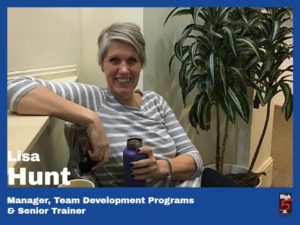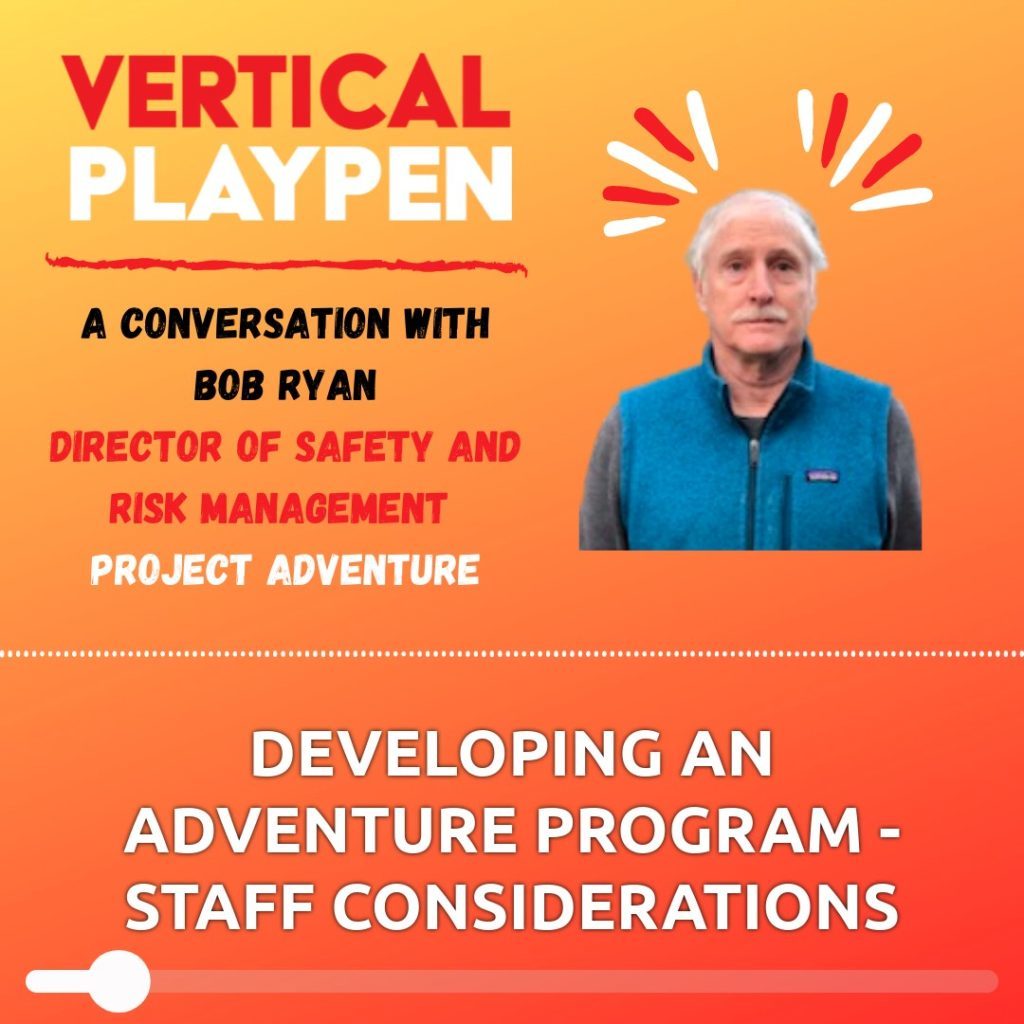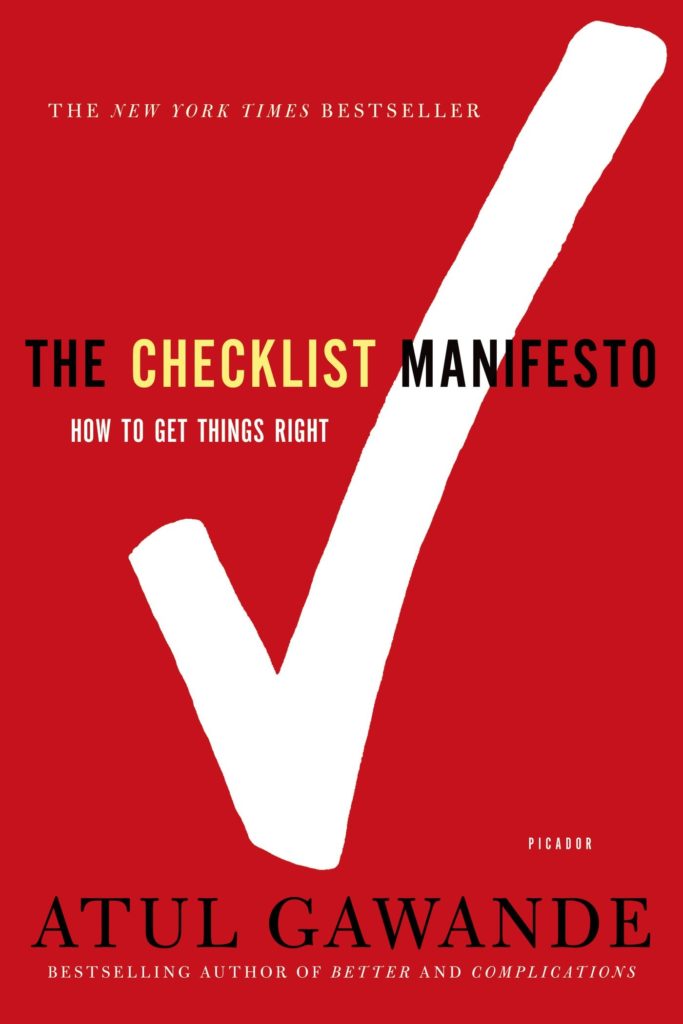Why Adventure Practitioners Need Checklists

A Book Review by Lisa Hunt
Book: The Checklist Manifesto – How to Get Things Right – By Atul Gawande
Update: Bob Ryan, Director of Safety and Risk Management at Project Adventure, recommended The Checklist Manifesto to Lisa Hunt several years ago. In the closing minutes of a new VPP podcast episode, Bob recommends this book again, and for many compelling reasons. As Lisa Hunt notes, “This book appears on my radar every few months-someone may quote it, or refer to a lesson learned from it, or mention that they have it on their bookshelf.” Most recently, Atul Gawande has made headlines as an appointee to President Biden’s Covid-19 Task Force. And, one more reason to add this book to your 2021 reading list. In an episode of Vertical Playpen in which Phil interviewed me about Risk Homeostasis, I said something like “one key to success in my career is if Bob Ryan suggests a book, it’s best to read the book.” The Checklist Manifesto is a resource that is always current and always relevant for Adventure Practitioners. Find out why in the short Q&A below…
Background
Here’s a must-read suggestion from High 5 Trainer Lisa Hunt, for all Adventure Practitioners: The Checklist Manifesto, by Atul Gawande. Lisa has over 20 years of experience in adventure education as a facilitator and trainer. Her degree in Anthropology and Sociology combined with her certificate in Outdoor Leadership from Greenfield Community College merged well to create a foundation of curiosity about culture and organizations. Equally interesting to Lisa is the question of how aspects of risk and adventure impact all of us. Adventure work has an inherent element of risk, but taking steps can mitigate that risk, and Atul Gawande’s book can help in significant ways. According to Lisa, she has been able to create space for more creativity and ultimately more efficiency in her work, with the support of books such as The Checklist Manifesto.


Q: Why do Adventure Practitioners need checklists?
A: According to Atul Gawande, who is a surgeon by trade, all fields of work benefit from a checklist, not just Boeing pilots or World Health Organization doctors, because the nature of all types of work has become quite complex. The adventure field is no exception. I think it’s easy for people to underestimate the complexity of their work, and sometimes you can fall into a false sense of complacency over tasks that you perform on a routine basis – like doublechecking harnesses. Creating a disciplined approach to your work can be difficult and sometimes feel like it lacks creativity and freedom if you are merely ticking boxes. However, in our field, where there are many steps to ensure someone’s safety on the ground or at height, we want to make sure that we deliver our programs safely and reliably – and this takes discipline. Gawande writes, “We are not built for discipline; we are built for novelty and excitement, not for careful attention to detail. Discipline is something we have to work at.”
Q: How does the checklist connect to your work in the field?
A: I feel more present, more creative, and flexible as a facilitator when I can rely on a systems checklist that backs up our human nature to forget things or get distracted. Moreover, I am reminded as well, that the checklist is not a training tool…the list is not teaching me what to do; it is reinforcing what I have known to do all along.
Q: How would you complete this sentence? Reading The Checklist Manifesto is a window into ____________?
A: How to make sense of a complex world, and how to unleash more creativity in your work by freeing your mind to concentrate and devote more of your attention to the people and tasks directly in front of you. This book gives you excellent examples of successful checklists in all industries, and it’s easy to replicate the success in our field. They allow you to work smarter, and rely less on instincts and memory, and more on practical information contained in a simple checklist.
Q: Is there a quote from the book that you continue to examine and apply to your work?
A: There are so many great quotes in The Checklist Manifesto, so I encourage you to read it for yourself. I’ll narrow it down to one that I repeatedly return to and apply to my daily work.
“Good checklists, on the other hand, are precise. They are efficient, to the point, and easy to use even in the most difficult situations. They do not try to spell out everything – a checklist cannot fly a plane. Instead, they provide reminders of only the most critical and important steps – the ones that even the highly skilled professionals using them could miss. Good checklists are above all, practical.” The operative word here is practical, something that isn’t theoretical but very useful.
Final Thoughts
I hope you take the time to read this book and feel free to share any thoughts with me via my email below. Perhaps you will agree that checklists are for you.
Contact Lisa Hunt at lhunt@high5adventure.org
If you liked this blog and don’t want to miss another one, sign up for our free e-newsletter below. Be the first to read new blogs, listen to podcasts, hear about new products, and more.